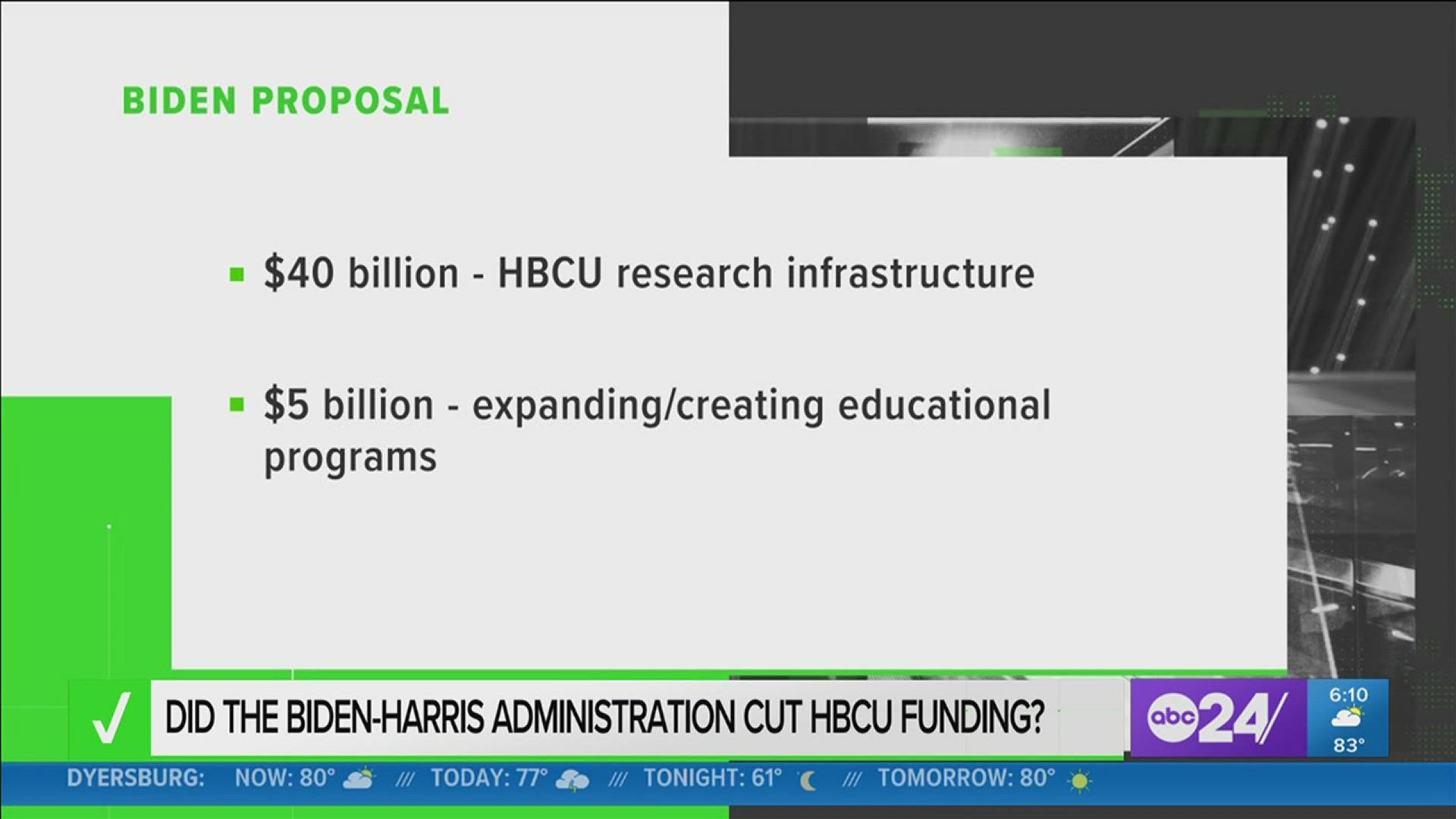D.C., D.C. — It's being reported on social media that the Biden-Harris administration has slashed funding to Historically Black Colleges and Universities from $45 billion to $2 billion. Some sites claim Biden wants to do a $30 billion cut. Both proposals would be a big drop in funding for HBCUs.
THE QUESTION
"Is President Biden cutting funding for HBCUs?"
THE SOURCES
The White House Press Secretary's Office
PolitiFact
Tennesee State University President Glenda Glover
THE ANSWER
No, HBCUs aren't losing $30 billion in funding, nor are they only receiving $2 billion in funding.
WHAT WE FOUND
Biden's $3.5 trillion spending plan originally included $45 billion in new funding for HBCUs and other minority-serving institutions. That’s funding on top of what HBCUs already get.
Biden wants to split the money this way: $40 billion for research infrastructure and $5 billion for expanding or creating educational programs in high-demand fields like STEM or nursing.
But that plan is changing. Instead, according to TSU President Glenda Glover, House Democrats want to only set aside $2 billion in grant funding for HBCU research infrastructure, meaning institutions would have to apply for the money instead of it being directly allocated to the school.
Glover said she spoke with Vice President Kamala Harris last week. She explained these are two different options currently being weighed in Congress, but the president is still fighting for $40 billion in HBCU funding.
"The president has put forth a $40 billion initiative for HBCUs - $40 billion for research. Someone else in Congress has put forth a bill that said $2 billion. We are trying to get it back up," Glover said.
In conclusion, since HBCUs never had the money, it's not a cut and any money they receive from Congress would be an increase. The debate right now is over how much the increase should be for research infrastructure upgrades.
No final decisions have been made, but if the $2 billion increase is approved, it is not clear how much will be set aside for HBCUs or if would be shared with other minority-serving institutions.

